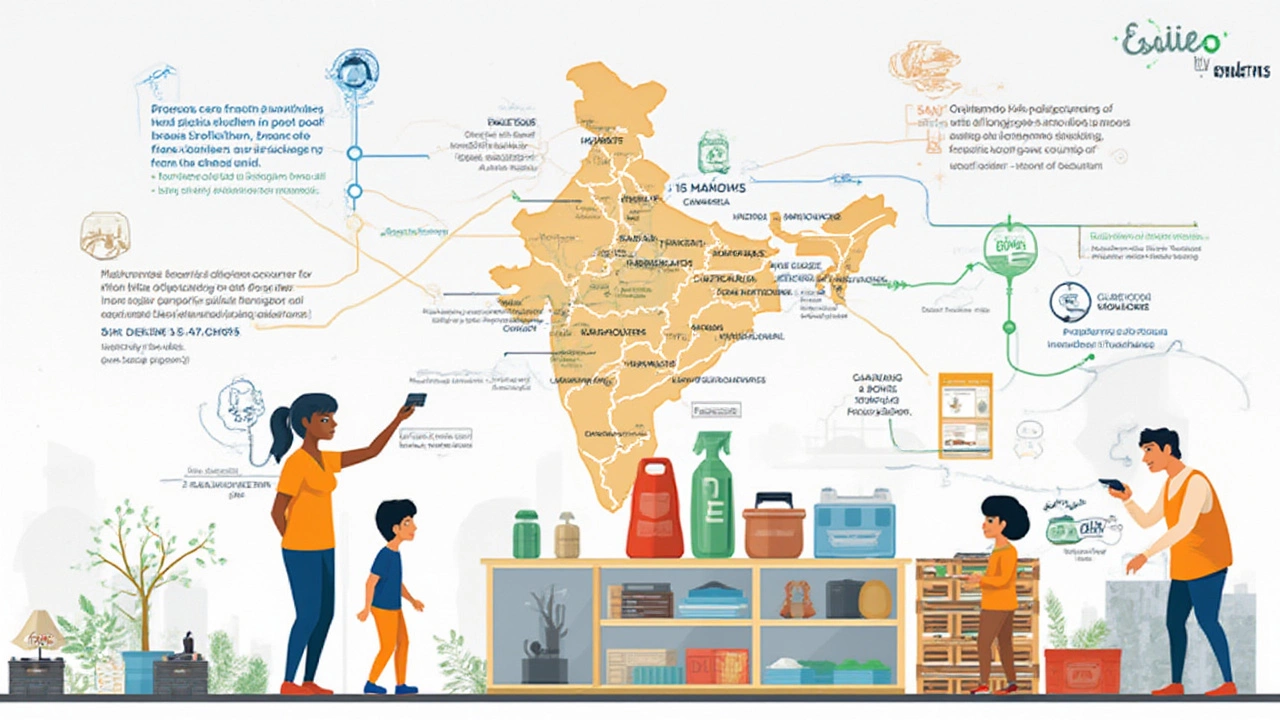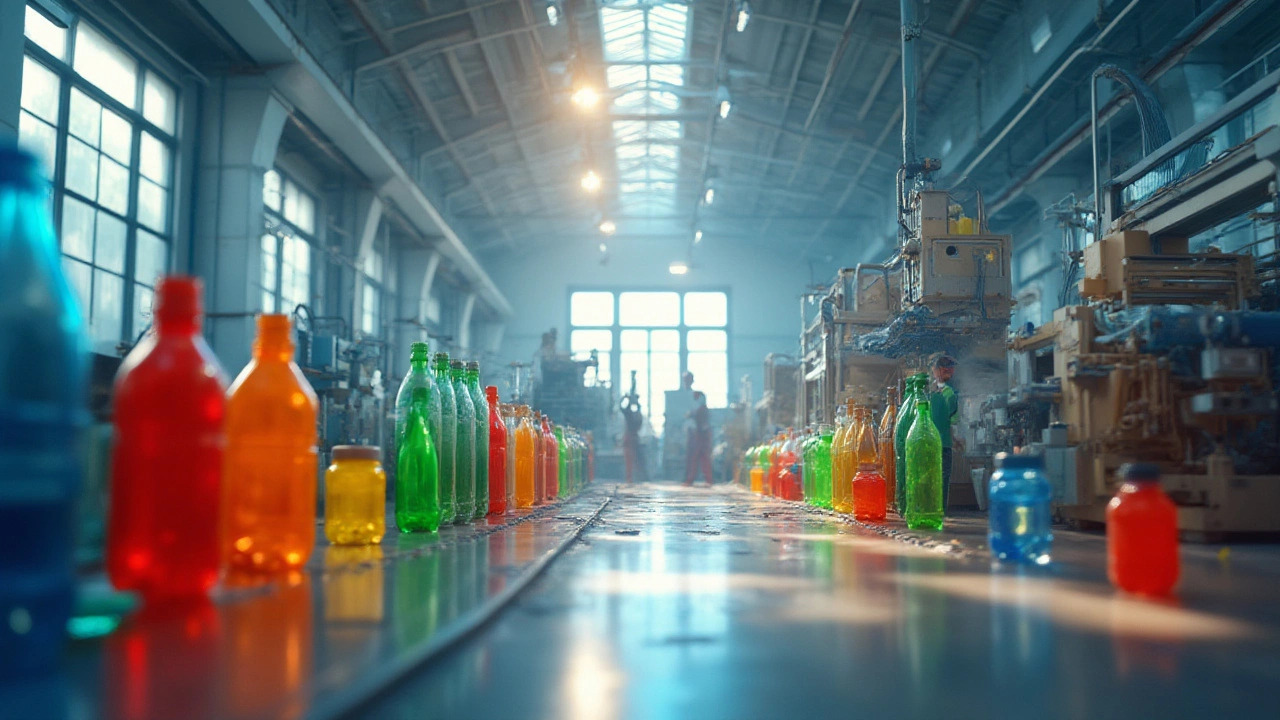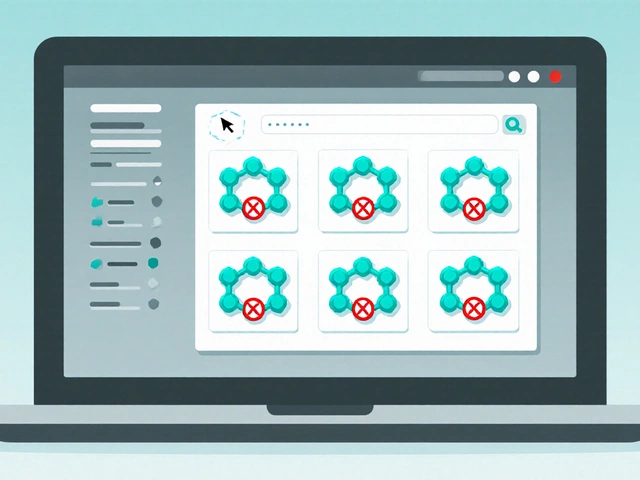Picture this: you’re opening a package, sipping water from a bottle, or fiddling with your new phone case. All these moments have one thing in common—plastic. Whether it’s obvious or hiding as a key gadget part, plastic shapes how stuff works and feels in our lives. But behind that harmless piece of molded magic is a global race among companies trying to be the best at making plastic: from suppliers of Lego bricks to the tubes in your toothpaste. Not all plastic is created equal, though, and figuring out which company stands out is a wild ride through tech, environmental rumors, and price tags. So, which company is actually best for plastic? Let’s break it down and find out who’s shaping up strongest in today’s world.
What Makes a Plastic Company the Best?
You’d think it’s all about huge machines that spit out mountains of products, but being a top plastic manufacturer isn’t just about size or speed. Imagine you run a startup needing low-carbon plastic for eco-friendly gadgets. Or maybe you’re a hospital manager hunting safe, medical-grade tubing. The best company for you might be totally different from someone else’s first pick.
Three things really set leading companies apart: quality, innovation, and reliability. High-quality plastics resist cracking, stand up to heat, look good, and (sometimes) don’t end up as microplastics in Buddy’s dog bowl. Innovation means new plastic blends—like bioplastics made partly from corn or sugarcane, ultra-clear plastics for medical scopes, or recycled-content materials for greener packaging. Then there’s reliability. You want a company that delivers on time, makes products you expect every time, and sorts out problems fast if something goes wrong.
It also helps if a company aces sustainability targets. As of July 2025, about 60% of customers in the UK say they’ll pay extra for recycled or biodegradable packaging. That has pushed top companies to invent plastics that break down faster, use fewer fossil fuels, or are easier to reuse. Of course, price matters. The best in the business keep costs low or offer flexible deals for bulk buyers or smaller clients alike.
| Factor | Importance |
|---|---|
| Quality | Very High |
| Innovation | High |
| Reliability | High |
| Sustainability | Increasingly Important |
| Price | Always Relevant |
Don’t forget service either. Great technical support or custom design help can make a giant difference, especially if your project is weird or just needs a special touch. The best companies become real partners, coaching you through tricky materials choices or showing off new possibilities before your competitors catch on.
World’s Top Plastic Companies You Should Know About
If you ask around, a handful of companies always make people’s shortlists. Whether you’re in Manchester, Mumbai, or Madrid, these names crop up because they’ve got reach, reputation, and impact. Some play at a massive global scale, while others are more niche but lead their specialties.
- BASF (Germany): BASF is the world’s biggest chemical company for a reason. They produce engineering plastics, foams, and specialty polymers, and they invest heavily in green technologies. Their Ultramid® line, for example, is all about high strength and low weight—crucial if you’re building cars, electronics, or even furniture.
- Dow Chemical (USA): When it comes to polyolefins and packaging plastics, Dow is a superpower. They’ve got plants around the world and deliver innovative materials for packaging, agriculture, and healthcare. Dow’s focus lately? New ways to recycle plastics and cut their carbon footprint.
- SABIC (Saudi Arabia): SABIC is a big deal in advanced plastics, especially polycarbonate and ABS, which show up in everything from sports helmets to car dashboards. They’re constantly rolling out new, stronger, and lighter blends.
- INEOS (UK): INEOS is a local hero if you’re in the UK. They lead in polyethylene and polypropylene, supplying everything from food containers to medical components. INEOS is pushing into recycling technologies—promising by 2026 to recycle three million tonnes of plastic each year.
- LyondellBasell (Netherlands/USA): Think huge. They’re leading in polypropylene, making stuff that’s in everything from yoghurt pots to automotive parts. They’re also pioneers in circular recycling, spinning used plastic into new products.
- Berry Global (USA): This is the name UK supermarkets turn to for flexible packaging, like wraps and pouches. Berry is known for fast custom work and a broad catalog, with lots of eco-friendly options.
There are smaller players making noise, too. If you run a niche application—say, you want quirky custom colors or special medical-grade certifications—companies like Röchling Group or UK’s own Plastics Direct often offer more personal support. These guys might not be household names, but their products might be in your kettle, phone case, or even in Buddy’s favorite chew toy.
The UK’s plastics industry alone employs around 160,000 people, across more than 3,500 companies. Not all focus only on making plastic objects—many supply raw materials, create bespoke blends, or even engineer recycling machinery. So, whether you’re after mass production or boutique solutions, the choice is huge.

How to Pick the Best Plastic Company for You
So, how do you actually find the right company for your needs instead of just picking whoever shouts loudest online?
- Start with your end goal. Are you building car parts that must not crack in the Manchester cold, or packaging that won’t leach chemicals into coffee beans?
- Find companies with proven experience in your niche and request solid proof of their track record—case studies, customer reviews, or sample packs.
- Evaluate their flexibility. Some companies are great at bespoke orders like colors, shapes, or quirky material blends. Others stick to huge, standard runs.
- Don’t ignore support. If you’ve never worked with a plastic molder or you’re trying a totally new application, make sure they offer decent tech help or design advice.
- Discuss lead times. Global supply chains are better in 2025 than they were a couple of years ago, but you still want a partner who’ll tell you bluntly if there’s a risk of delays.
- If sustainability matters, look for companies certified by bodies like the British Plastics Federation or who can document the recycled content or carbon impact in their products.
One clever way: ask what happens if something goes wrong. Do they cover defects fast? Will they help swap a material that’s not working out? A great firm won’t run for cover—they’ll step in and fix things promptly.
Here’s a quick checklist for finding the right fit:
- Do they supply your type of product (sheet, pellet, molded good)?
- Is their minimum order manageable?
- Can they provide documentation for safety or suitability (like food-safe plastics or RoHS compliance)?
- What’s their environmental policy?
- How friendly and knowledgeable does their sales team seem on first chat?
This probably sounds like a lot, but if you get it right, you avoid headaches and end up with better products. Your customers or users will notice—even if Buddy can’t give direct feedback on his new dog bowl.
Plastics in Our Future: What Trends Matter in 2025?
Plastic’s reputation has been all over the place—scapegoat for pollution one year, high-tech savior the next. The good news: in 2025, big changes are showing up in how companies do things. Now, no one wants to be seen as the brand that ignores recycling or leaks microplastics everywhere. Companies are responding in a few big ways.
First up: circularity. This means making plastic, using it, collecting it, then melting or breaking it down for reuse—over and over. It’s not just talk: in April 2025, INEOS opened a new UK recycling facility which can digest mixed plastic waste that used to go straight to landfill.
Then there’s bioplastics. Companies like BASF and NatureWorks (famous for their PLA material in compostable coffee pods) are rolling out better versions that degrade quicker and don’t spoil your food’s taste. The global bioplastics market was worth about £13 billion in 2024, with the UK’s chunk growing faster than most of Europe. Experts expect this to double by 2027, thanks to laws pushing for less single-use plastic.
Supply chain transparency is another biggie. If you’re making anything for kids, medical use, or food, consumers increasingly want to know your supplier can trace every pellet back to its origin. Top companies now use blockchain tech to track raw materials, aiming to stop counterfeits and guarantee safety.
Innovation in additives is on fire, too. Think of plastics that stop bacteria, repel water, or adjust their flexibility in cold weather (which Buddy can appreciate during Manchester’s rainy stretches). These new blends help cut down waste—if the plastic lasts longer or does more, you use less.
One random but cool fact: a study from the University of Manchester found microplastics as far as 2,000 feet deep in local rivers in 2023. Since then, plastic companies have been racing to fix this image, either by inventing less-shreddable items or joining community clean-ups. Public pressure is powerful when picking new suppliers—that’s why you’ll see many top brands shouting about “closing the loop” and cleaner oceans in 2025.

Tips for Working With a Plastic Company
Ready to dive in? Once you’ve built your shortlist, working smoothly with a plastic supplier gives you a serious edge. Here are real-life tips—ones that businesses from Manchester’s tech startups to the UK’s brewing sector actually follow.
- Be ultra-clear about your needs. Vague emails get vague responses. Attach a sketch, send a photo, or explain exactly what problem you’re trying to solve.
- Ask about tooling fees. If you want a weird shape (like a chewable phone case for Buddy—just a thought!), expect upfront costs for molds. Sometimes, companies will credit this against larger orders.
- Get samples—lots of them. Nothing beats holding the material yourself or running it through real-world stress tests.
- Join the move toward recycling. Some plastic companies now take back offcuts or offer “closed-loop” deals—where your scrap gets reused in the next round.
- If you’re local to the UK, tap into industry days—like the Interplas Expo in Birmingham. It’s where you can meet reps in person and see the latest tech live.
- Negotiate on delivery windows, especially if your order is seasonal or big. Reliable suppliers will often work around your deadlines, not just theirs.
- Track news about plastics law. The UK’s plastics packaging tax, for example, punishes imports with less than 30% recycled content. A smart company will help you dodge penalties and even flag money-saving grants.
Now, here’s a stat to take home: according to PlasticsEurope, about 55% of all UK-made plastic products in 2024 contained some recycled material, up from just 38% in 2020. If that matters for your brand or project, lead with it in your first chat with a supplier—the best companies are proud to show off their green advances.
Choosing the best plastic company isn’t about following giants or grabbing “eco” promises off a glossy brochure. It’s about matching your exact needs to a company’s abilities, technology, and attitude. When you get that fit right, you’re set for smoother projects, fewer headaches, and a cleaner planet—even if Buddy just cares about his next walk.







Write a comment